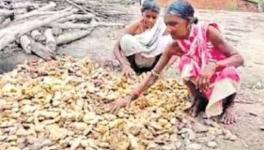Haryana Polls: Farmer Distress, Unfulfilled Promises Haunt BJP Govt
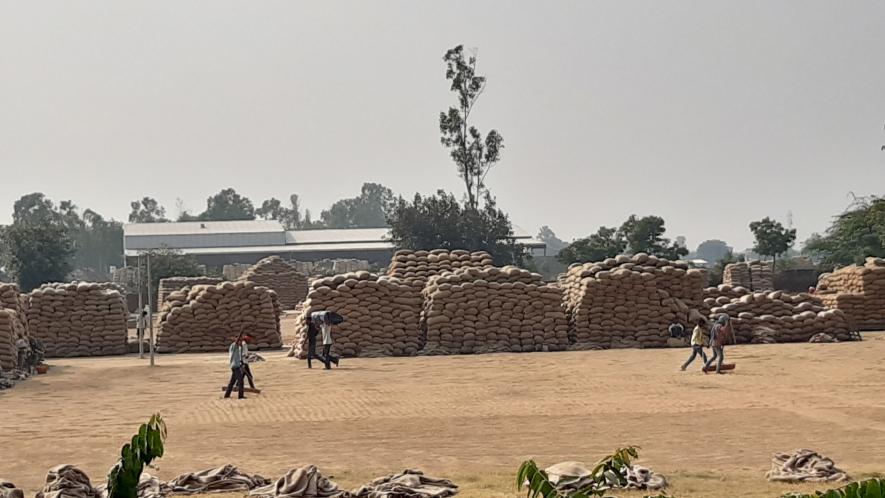
Chandigarh (Haryana)/New Delhi: Farmers and their issues were a key talking point in Haryana, but, during the campaign for the Assembly elections, the manifestos of different political parties did not even mention the basic problems related to the farming community. Instead of a concrete and long-term plan to address the farm crisis, only short-term and populist moves, such as promise of debt waiver, found a mention in election manifestos.
Over half of the Haryana’s 90 Assembly segments fall under rural areas. Agricultural farming accounts for 17% of the state’s gross domestic product (GDP).
Farmers in the state do not appear happy with Chief Minister Manohar Lal Khattar’s performance because of distress across the state. They said minimum support price (MSP) of mustard was Rs 4,000-4,200/100 kg depending on its quality, but they get the rates of Rs 3,800-Rs 4,000/100 kg, respectively, because it is sold through mediators, who take their commission. The government, they said, does not buy cotton, which is one of the main cash crops of the region, as it does not have facilities to store it. The MSP of wheat is also insufficient to recover even the production cost.
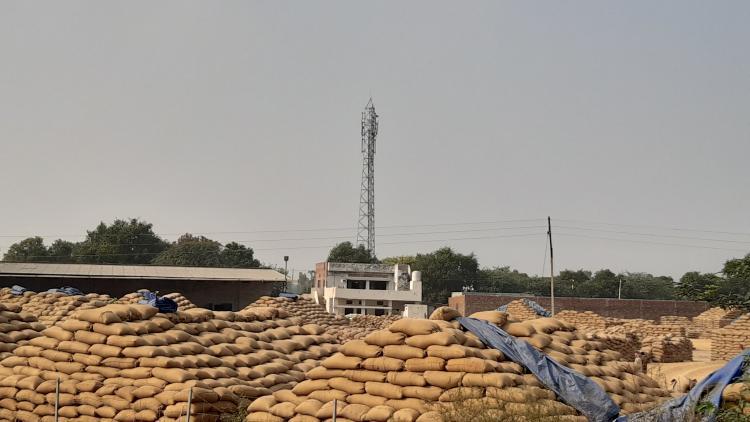
Talking about farmers’ woes, Rampal, a resident of Pawra village in Hisar district, says, “The biggest problem for farmers in the region is lack of water for irrigation. We depend on Bhakra river for irrigation, but it caters a huge area. As a result, we do not get adequate water. In addition, the higher cost of electricity and rising prices of fuel is making irrigation costlier.”
Rampal said cotton, wheat and mustard were the main crops cultivated here. “But neither of these crops get the right price. Since cooperative societies don’t purchase cotton in absence of storage facility, it is sold to private traders, who exploit us. We get a better deal on mustard, but its purchase is capped. One cannot sell more than 25 quintals of mustard, but its production is higher in the region. The government only purchases wheat properly, but its MSP is lower.”
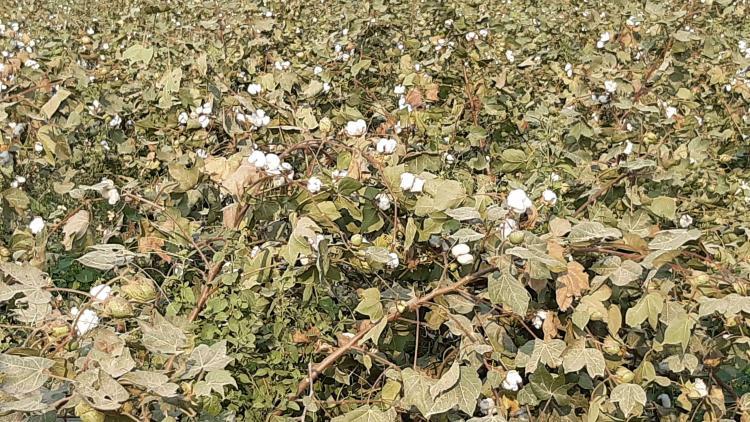
Another farmer, Amit, 30, said the government buys wheat at Rs 1,920/100 kg. “But this price is even below the production cost. Private buyers don’t buy it. Mustard is bought at Rs 4,000-4,200/100 kg as per its quality. But instead of buying it directly, it involves mediators who offer us Rs 3,800-4,000. They take Rs 200 as commission. However, this is better than the price offered by private buyers who buy it at Rs 3,500/100 kg. But the problem is its weight capping. The government does not buy more than 2,500 kg of mustard from an individual farmer, which creates a lot of problem for us. What will we do with the rest? This capping should be for landlords, not for the landless farmers,” he said.
Amit also blamed the government for not having a proper mechanism to promote agricultural farming. “We face problems with procurement of fertilisers and seeds, which are not generally of good quality. There is no proper monitoring of seed quality and fertilisers available in the market. Big companies procure licences and the quality control department’s go ahead by bribing officials concerned or due to political connections,” he alleged.
He said “If the seed is fake, then our year-long hard work goes waste,” he said, adding that water was an added problem.
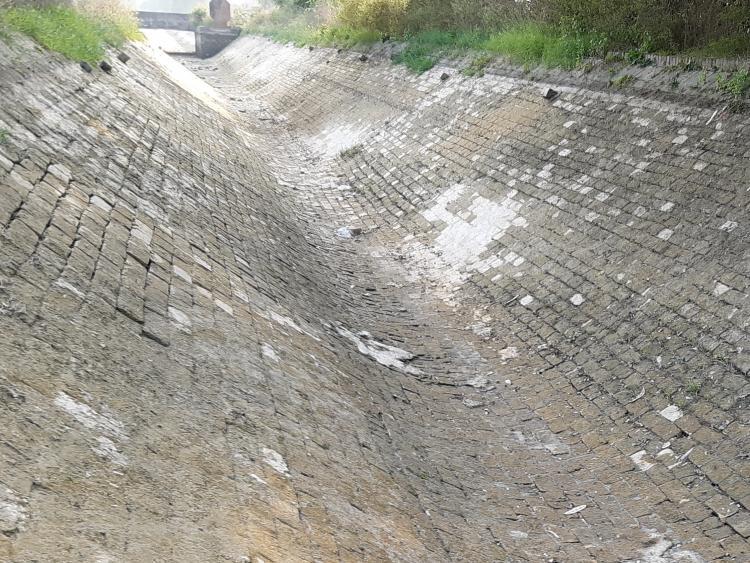
“Suppose, one gets good quality seeds and fertilisers, the next problem is shortage water for irrigation. Power supply for a shorter period increases our woes. If all goes well, the fear of natural calamity always looms large. In case of any natural disaster, farmers should be given proper compensation. But the faulty insurance scheme does not provide any relief,” Amit said.
Kishori Lal of Kajla village in Hisar district had similar views, and said average production of mustard was much above the capped limit. Farmers have to sell rest of their mustard produce to private buyers at cheaper rates (Rs 2,800/100 kg).
Mahendra Singh Jangra of the same village was unhappy that the government had promised that farmers with landholding of less than two acres would get Rs 6,000 every year in their bank accounts, but now, this land holding criteria has been revised to five acres to bring down number of beneficiaries.
Satbir Singh of Burak village said agricultural farming in the state had become a “time pass” business. “Since people have no other option, they are engaged in cultivation. There is no return of the production cost and the physical labour involved,” he said.
Farmers are also cited problems of stray animals that enter the fields in groups and destroy standing crops.
Surajmal, a farmer from Kaithal, said farming was no longer lucrative. “We wish the government acquires our land for road or industrial projects so that we get good compensation. We can use the money to do something else. Leaders talk a lot about farm distress but when they are voted to power, they forget all their promises,” he added.
It is worth noting that all the major parties have given agriculture and the issues of farmers utmost importance in their manifestos.
The Congress, in its declaration paper, has carved out a 20-step plan to address farm distress. A farm loan waiver within 24 hours if it forms the government is a beginning. It has also said that the farmers who have a landholding of up to two acres would be given free electricity and crop insurance. It intends to provide interest-free loans to cover input costs to tenant farmers, sharecroppers and farmers owning and cultivating up to two hectares of land.
The party has also plans to review the methodology used by the Commission for Agricultural Costs and Prices to determine the MSP to guarantee remunerative income to the farmers. It has talked about re-looking at the norms of compensation for natural calamities and revise conditionalities which are farmer friendly.
It wants set up a permanent Kisan and Krishi Mazdoor Welfare Ayog with a constitutional status to oversee the welfare of the farmers and farm workers, guaranteeing them social security in old age. The party plans to give incentives to start-ups and other companies that provide technical and marketing support to farmers.
Its manifesto says that legal and penal provisions would be strengthened against traders who buy farmers’ crops below the MSP. GST on agricultural equipment and other inputs is to be re-examined to lower input costs for the farmers.
The BJP has promised to fix MSPs for the purchase of every crop. It has also promised to give a budget of Rs 1,000 crore to the Farmers Welfare Authority, and assured regular screening of all milch animals. The party has also pledged to provide an insurance cover to all animals. It has also talked about extending special help to women who are involved in dairy farming.
Similarly, the JJP has promised in its manifesto that farmers will be given a bonus of 10% or Rs 100 on the MSP of the crop.
The party has also promised to waive off farm loans taken from cooperative banks. It has said that auction of farmers’ land will be stopped. Farmers will be given Clear Title of Land (CLU) free of cost for their self-employment. Kisan Model Schools will be opened on the lines of Navodaya Vidyalaya.
A ‘BUNDLE OF LIES’
However, most of the farmer leaders in the state term these manifestos as a “bundle of lies”.
Bhullar Ram Arya, leader of the All India Kisan Sabha (AIKS), said, “All political parties are making false promises. Had the promises made in manifestos of previous elections been fulfilled, the farmers would not have to hold protest demonstrations on several occasions. All political parties have made fancy promises, but none of them has given a blueprint or roadmap to address the woes of the farming community. In fact, when farmers protest to press the government to walk the talk, they are slapped with criminal cases.”
Bharatiya Kisan Union (BKU) shares the same feeling. Its leader, Ratan Mann, said, “Farm loan waiver is much needed to provide immediate relief to farmers who are under a heavy debt burden. But farmers have also been cheated by these political parties in the name of loan waiver in many states.”
After taking votes of farmers in elections, these parties have reversed their promises. “Political parties should not limit their thinking to just taking votes. They should work for change in the lives of farmers. Accordingly, policies need to be made so that farmers can live a happy life and they do not have to take loans,” he added.
DECLINING SHARE OF AGRICULTURE
Notably, the share of agriculture in Haryana’s economy has been decreasing rapidly for the past 10 years. But industrial share is increasing, like the rest of the country. The trend has got a boost after the BJP government came to power.
Experts see caste-based politics in the state as a reason behind the trend. Majority of the farmers in Haryana belong to the jat community — who are not considered supporters of BJP in the state. Therefore, the ML Khattar government, they say, is focusing more on industrialisation rather than agriculture, as industrialists are considered to be close to the saffron party.
However, after the slowdown in the auto sector, the government is also facing trouble on that front, as the automobile industry holds a large share in the industrial production of the state.
Get the latest reports & analysis with people's perspective on Protests, movements & deep analytical videos, discussions of the current affairs in your Telegram app. Subscribe to NewsClick's Telegram channel & get Real-Time updates on stories, as they get published on our website.

















